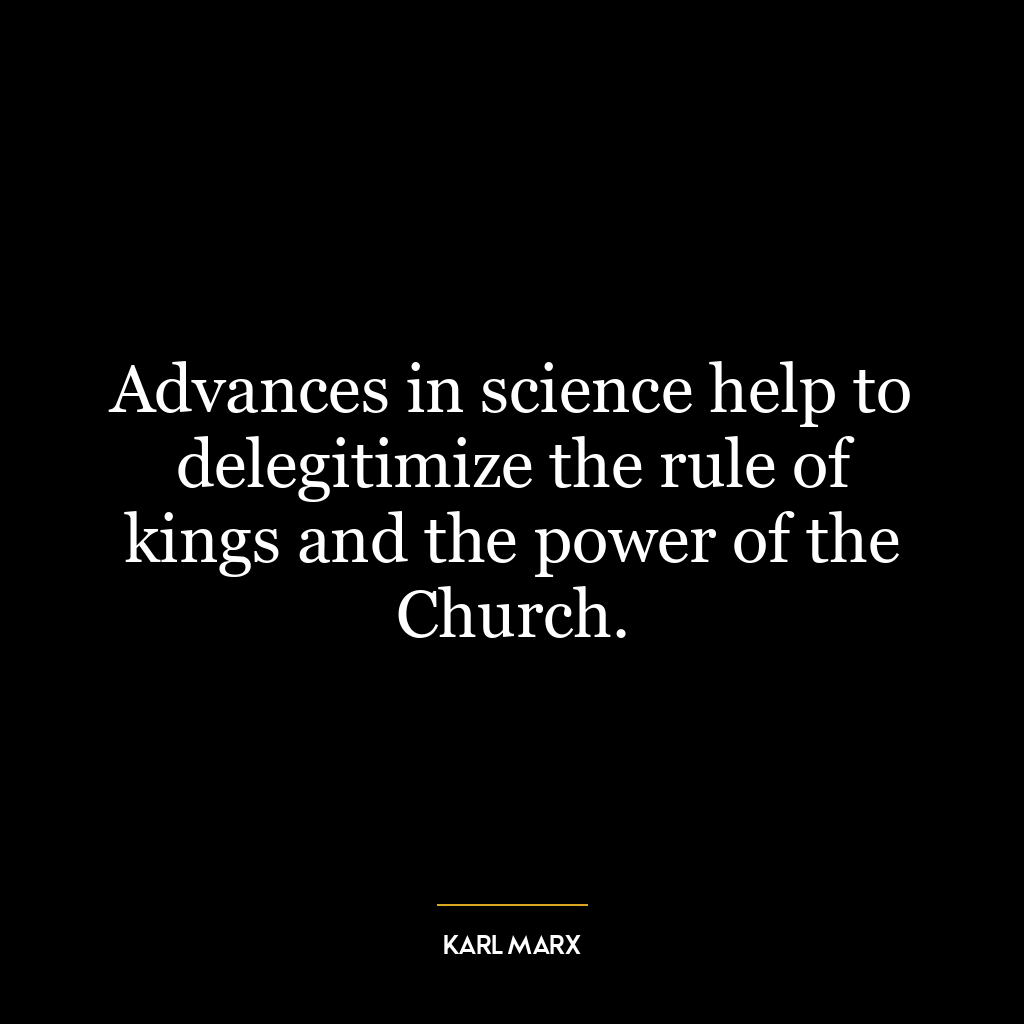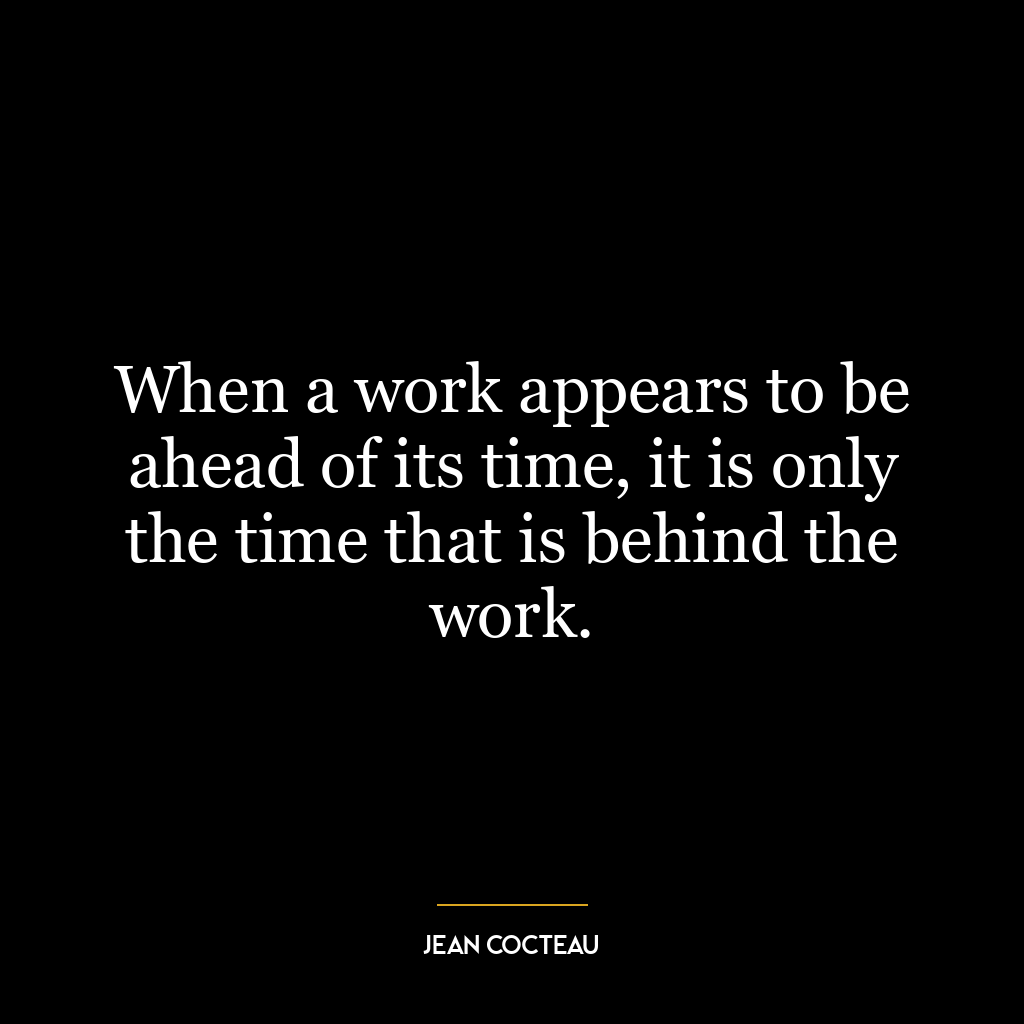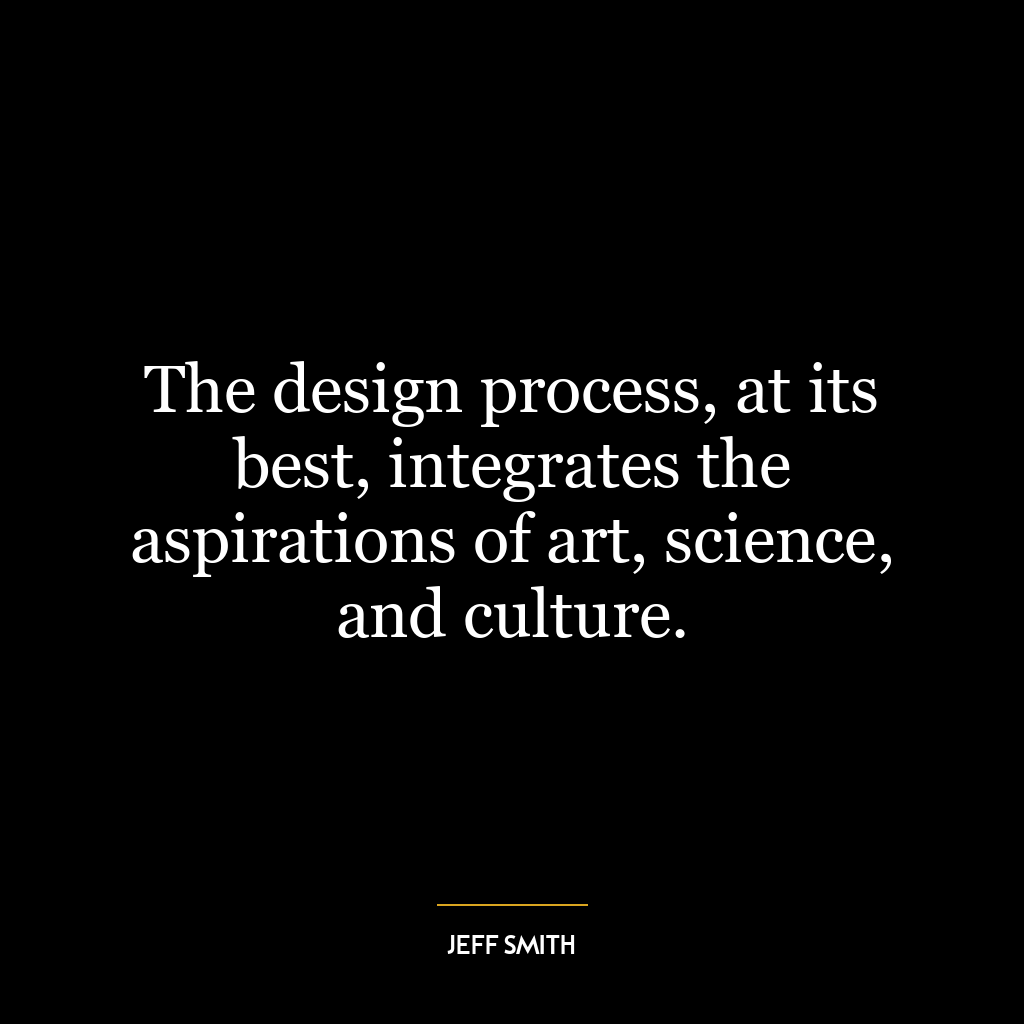The quote, “Advances in science help to delegitimize the rule of kings and the power of the Church” is a profound statement that underscores the transformative role of scientific progress in society. In essence, Marx is suggesting that as science advances, it tends to erode the traditional power structures, such as monarchy and religious institutions, which often base their authority on divine right or unchallengeable dogma.
To understand this, let’s consider the historical context. In pre-modern societies, the church and the monarchy held the most power, often justified by religious beliefs or divine mandates. These institutions were seen as the ultimate authorities on truth, morality, and the natural order of things. However, as science began to advance, it started to question and challenge these established beliefs and norms. The scientific method, which relies on empirical evidence and logical reasoning, provided a new way of understanding the world – one that often contradicted the teachings of the church or the divine right of kings. This, in turn, undermined their legitimacy and authority.
For instance, the heliocentric model of the solar system proposed by Copernicus directly challenged the Church’s geocentric model. Similarly, Darwin’s theory of evolution contradicted the biblical account of creation, causing a significant shift in people’s perception of religion and God.
In today’s world, the same principle applies. Scientific advancements continue to challenge traditional beliefs and power structures. For example, advances in reproductive technologies challenge traditional beliefs about conception and parenthood. Climate science challenges political and economic systems that rely on fossil fuel consumption. Even the rise of artificial intelligence and robotics challenges our traditional views on work and employment.
On a personal level, embracing science and rational thinking can empower individuals to question established norms and beliefs, fostering personal growth and development. It encourages individuals to seek evidence-based truths rather than blindly accepting dogmas, leading to more informed decision-making in every aspect of life. It can also lead to a greater understanding and acceptance of the diversity of the human experience, as science often reveals the complexity and variability of life.
In conclusion, the advancement of science has a profound effect on society by challenging and reshaping traditional power structures and beliefs. This transformative power of science continues to be relevant today, both at a societal and personal level.















